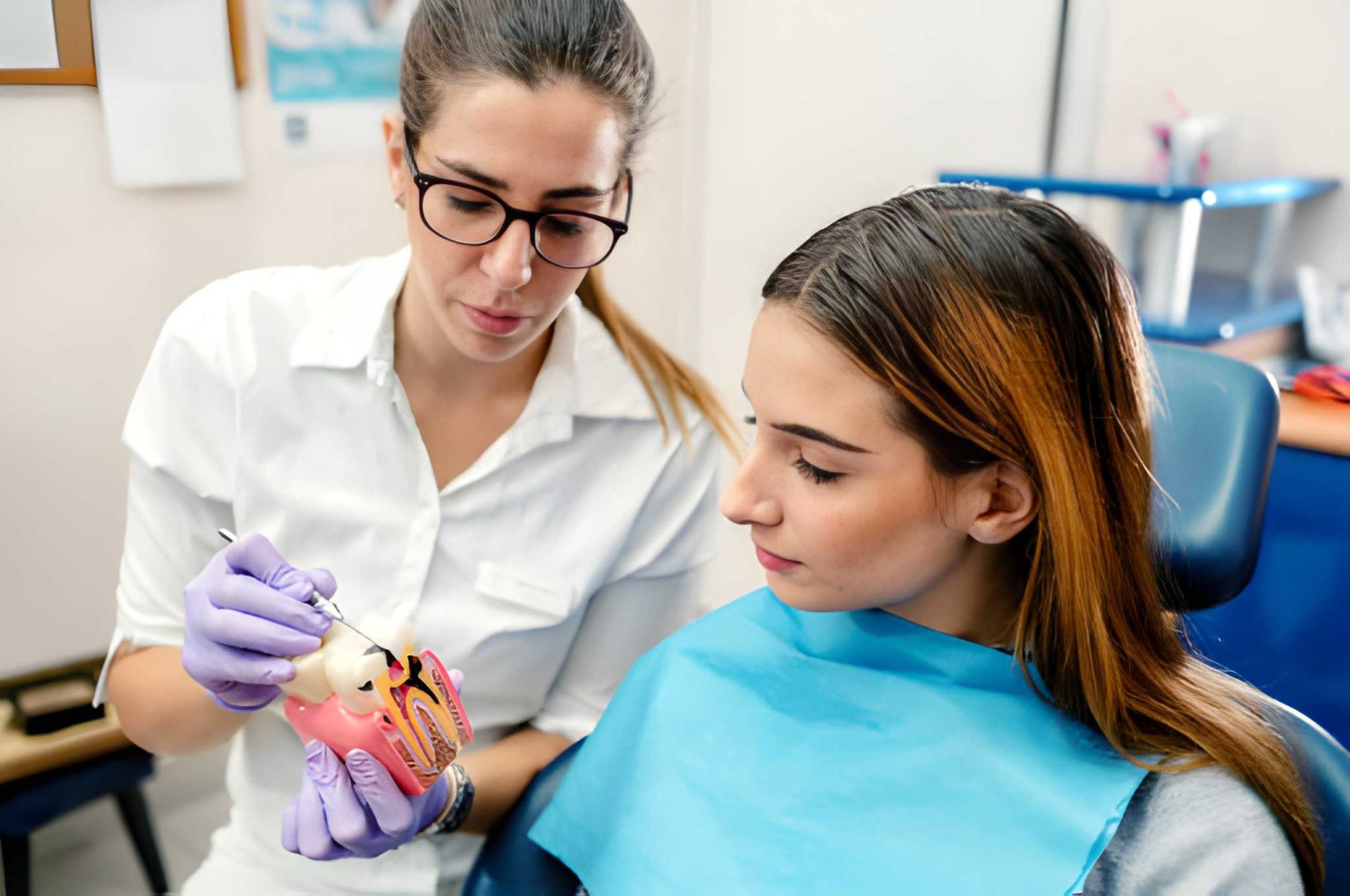How can you make your smile flourish with healthy gums? When gum disease first occurs, it will normally manifest in some redness, bleeding, and foul breath. Just like healthy teeth, healthy gums are important and fall under your daily oral-care routine. Not treating a gum infection may lead to the need for root canal therapy in St. Albert, in some cases. This incident helps show just how important prevention is.
Why Does Gum Care Matter So Much?
Healthy gums support your teeth and protect the bone below. Build-up of bacteria irritates, swelling infection. However, the good news is that prevention of gum disease is simple. If you regularly use the right tools to better clean your mouth, you won’t endure discomfort, pain, or longer dental treatments later on.
After these basics, you may begin looking for a dentist near you to keep your gum problems in check.
1. Brush Your Teeth the Right Way
Brushing helps dislodge plaque that can damage your teeth and gums. But brushing too fast or too vigorously doesn’t work well. Alternatively, use a soft toothbrush, spinning it at circles to keep it neat.
Tips for healthy brushing:
- Brush for 2 minutes
- Angle the brush toward the gumline
- Clean your tongue to reduce bacteria
- Replace your toothbrush every 3 months
A simple, gentle brushing avoids gum irritation at an early stage when it is not serious.
2. Floss Every Day to Clean Hidden Spaces
Even the best toothbrush can’t reach between your teeth. Flossing removes trapped food and plaque that brushing leaves behind. When plaque stays in these tight spaces, it can quickly lead to gum swelling and bleeding. If these areas stay infected for too long, it can sometimes lead to deeper tooth infections that may require root canal therapy near you, which is why daily flossing is so important.
Why flossing helps:
- Keeps gums strong
- Prevents cavities between teeth
- Reduces bad breath
- Stops plaque from hardening into tartar
Flossing takes just a minute but can prevent gum disease and make a big difference.
3. Choose Foods That Help Gums Stay Healthy
What you eat affects your gum health. Food plays an important part in making your gums stronger or weaker. What and how you eat could help your mouth, just as it helps your body.
Foods to improve gum health include:
- Leafy greens
- Fresh fruits like apples and oranges
- Yogurt and cheese
- Fish with omega-3 fats
- Nuts and seeds
Eating these foods keeps your gums healthy and strong by reducing inflammation.
4. Avoid Smoking and Tobacco Products
If you smoke, it will make your gum disease much worse, as it slows healing and reduces blood supply to your gums. Furthermore, tobacco makes it harder for your body to fight infection. Even excellent brushes can get serious gum problems from smoking.
Stopping smoking helps:
- Reduce bleeding gums
- Improve breath
- Strengthen your immune system
- Lower your risk of severe gum disease
If you smoke, stopping is one of the best things for your gums.
5. See Your Dental Team for Early Care and Support
Gum disease is an easy thing to be caught by means of regular dental visit, maybe even before you realize it yourself. The removal of tartar, a check for infection signs and a plan to protect your gums can be done by your dental team. If at any time you ask yourself how to cure gum disease, the reply most of the time is early care, cleanings, and in some cases, special treatments for deep gum pockets.
Getting professional checkups is safest for staying on track with a healthy smile.
Your Gums Deserve Expert Care—Book Now!
Do you want to keep your gums healthy and avoid any issues? With a little help from Dentus Family Dental, you can definitely take your first step towards better oral health. Schedule your appointment now for a lasting smile!
FAQs
1. What is the first sign of gum disease?
When you brush, if you see any red, swollen, or bleeding gums, it is often one of the earliest warning signs.
2. Can gum disease be reversed at home?
With proper brushing, flossing, and a healthy diet, early gum disease can improve, but further cases need dental work.
3. How often should I have my gums checked?
Early detection of gum disease is ideal for every 6-month dental checkup.
4. Does gum disease cause foul breath?
Bacteria trapped under the gums indeed can create a strong smell.
